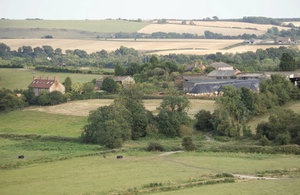Fair funding for farmers across all parts of the UK

The Government has announced a review to deliver fair funding for farmers in all four parts of the UK when we leave the EU.
The Secretary of State announced today that an independent advisory panel will look at what factors should determine the distribution of agriculture funding between England, Scotland, Wales and Northern Ireland in this Parliament.
This will consider each country’s individual circumstances, including environmental, agricultural and socio-economic factors. Farm numbers and farm sizes will also be taken into account to make sure all parts of the UK are treated fairly.
The review, led by Lord Bew of Donegore, will provide recommendations for how the annual amount of convergence funding is fairly split between the four countries in the remainder of this Parliament once the UK has left the Common Agricultural Policy. It will be informed by previous allocations but will not revisit these decisions or redistribute money that has already been committed.
Lord Bew was Chair of the Committee on Standards in Public Life for five years and has contributed to a number of Bills, reviews and reports since his appointment as a non-party-political peer by the independent House of Lords Appointments Commission in February 2007. He will be joined by an experienced panel made up of representatives from each part of the UK. Lord Curry of Kirkhale, Jim Walker, Rebecca Williams and Leo O’Reilly have been appointed to the panel to represent England, Scotland, Wales and Northern Ireland respectively.
The government is also committing that it will not simply apply the Barnett formula to changes in Defra funding beyond this Parliament. This means that farmers in Wales, Scotland and Northern Ireland will not just be allocated funding according to the population size of each nation, which are in each case significantly smaller than England.
The Government has already confirmed that overall funding for UK farm support will be protected in cash terms to the end of the Parliament in 2022, providing more certainty than any other EU member state.




